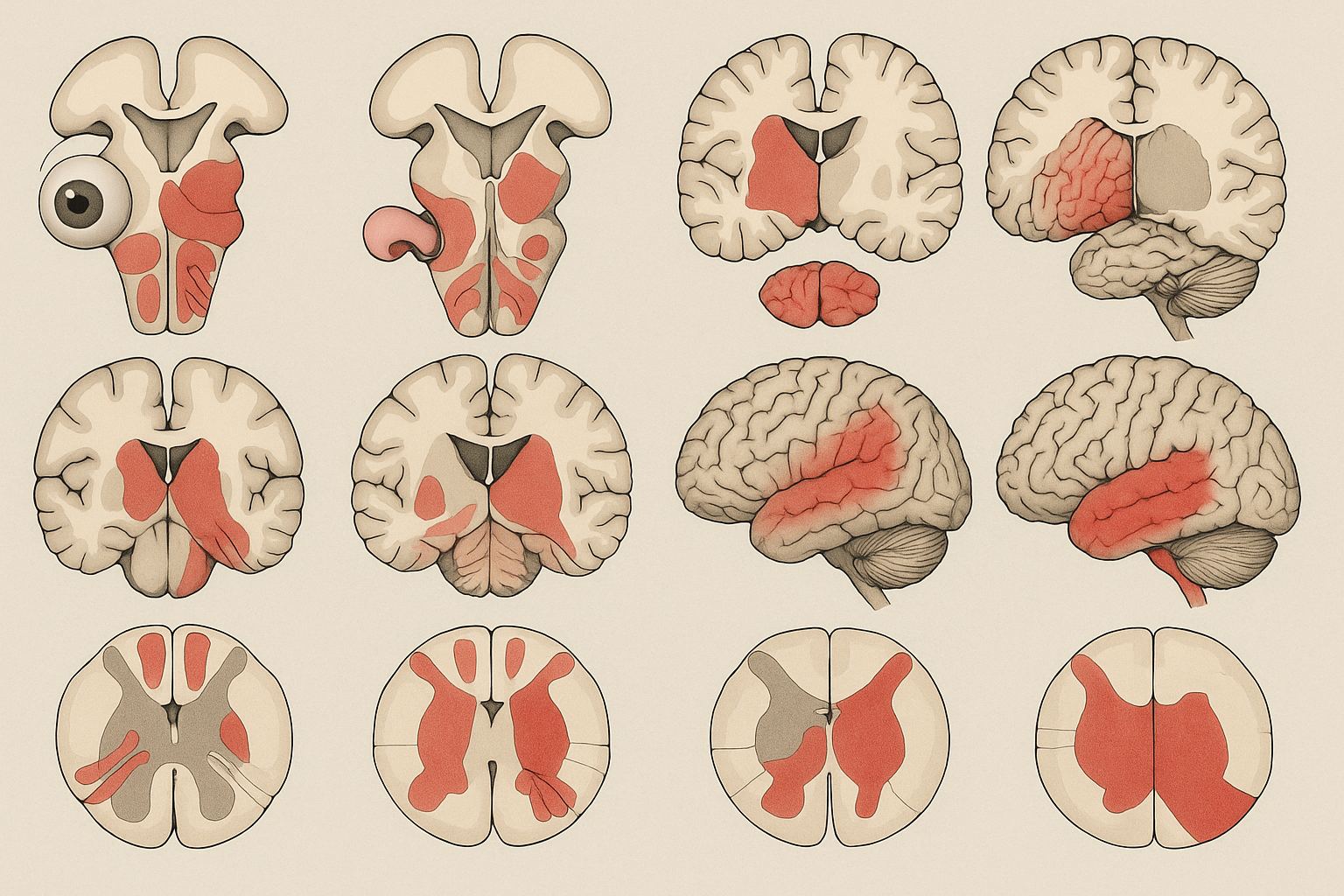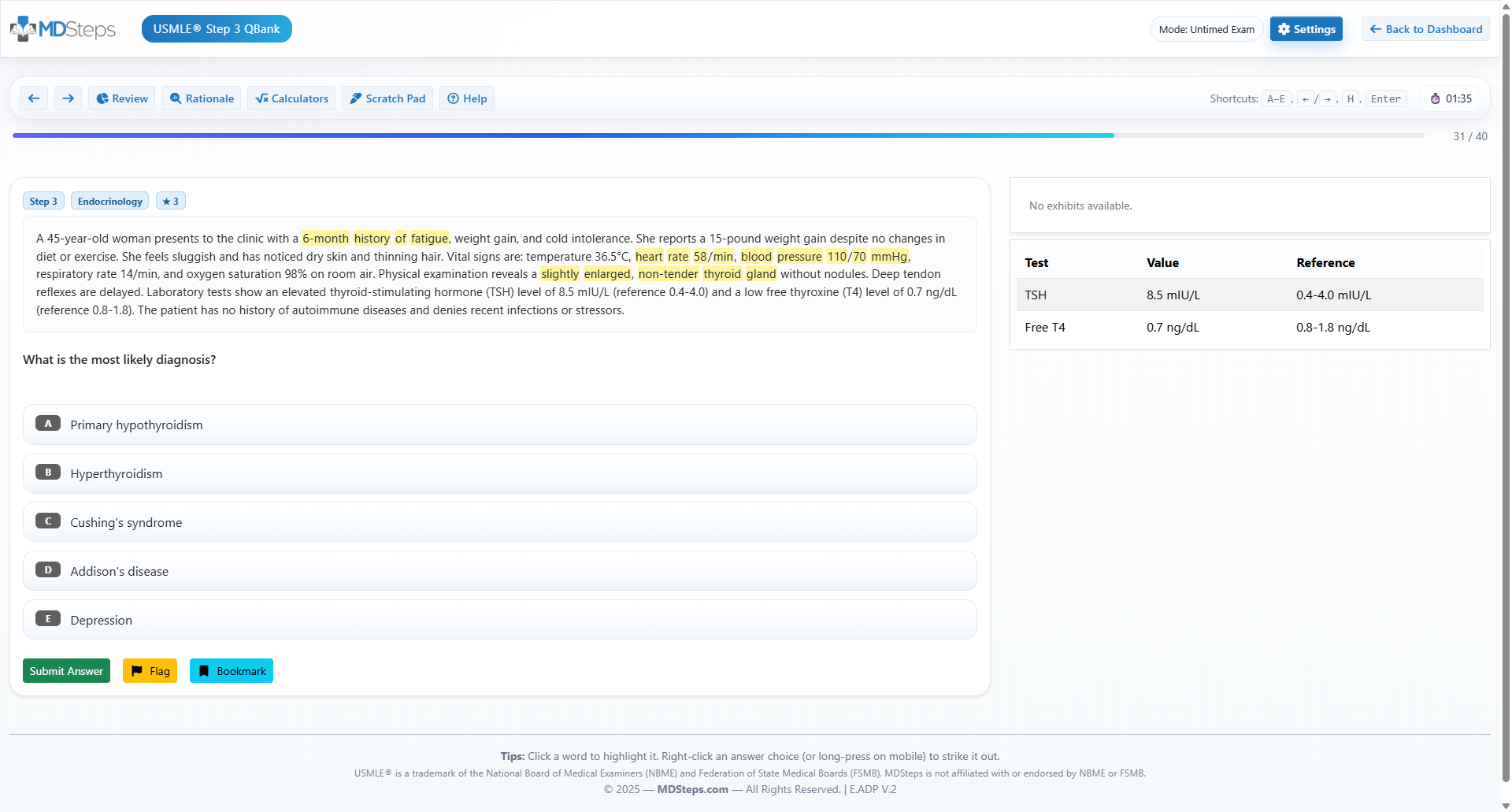Step 1 Prep When You’re Not a Full-Time Student: The Definitive Plan
A realistic, high-yield Step 1 study plan for nontraditional students balancing work, family, and limited time.
Why nontraditional students need a different Step 1 study plan
Traditional Step 1 advice assumes open calendars, lengthy “dedicated” blocks, and rapid cycling through resources. If you are working full-time, returning after a gap, changing careers, or managing caregiving responsibilities, that model breaks immediately. A sustainable Step 1 study plan for nontraditional students must convert small, predictable windows into outsized learning gains. That requires three pillars: precision (study only what moves the score), friction-free systems (plans you can follow on your worst day), and feedback loops (analytics that tell you whether time spent is working).
Evidence-based learning science is on your side. Distributed practice beats cramming, retrieval practice beats rereading, and interleaving outperforms blocked study when you’re building diagnostic agility. You don’t need eight hours daily—you need consistent, well-designed sessions that end with a concrete next action. MDSteps builds around this reality: an Adaptive QBank (>9,000 questions) identifies your weak threads, the automatic Study Plan generator schedules what to do next, and the analytics & readiness dashboard shows whether accuracy in high-weight systems is climbing week over week. You also get automatic flashcard decks from your misses (exportable to Anki) to turn every error into spaced repetitions during commutes and micro-breaks.
Your goal is not to “finish resources”; it is to master tested patterns under time constraints. That means prioritizing systems with the greatest scoring leverage (pathology, physiology, micro/pharm integration), practicing with timed blocks early, and translating each miss into a retrievable cue. When life gets chaotic, you will fall back on habits. We’ll engineer those habits now: short weekday micro-sessions, structured weekend long-forms, and biweekly diagnostics that keep the plan honest. The result is a reliable, adaptive framework that respects your limits and still delivers exam-day fluency.
Phase 1 — Diagnose, triage, and plan (Days 0–7)
Start by measuring before moving. Take a baseline 80-question mixed, timed assessment in MDSteps to map accuracy by subject and organ system. Export the report and highlight three domains: (1) High-weight & low accuracy (urgent), (2) Medium-weight & medium accuracy (next), (3) Low-weight or high accuracy (maintain). Triage ruthlessly; the exam rewards mastery of common, integrate-able threads over obscure minutiae.
Scoring leverage map
- Pathology + mechanisms → anchors vignettes.
- Physiology → predicts stems and choices.
- Micro + Pharm → mechanism-based recall, not rote lists.
- Biostats/ethics → clean points if practiced in timed sets.
One-week setup checklist
- Run baseline mixed exam (timed).
- Enable MDSteps automatic study plan + daily email prompts.
- Turn on “auto-flashcards from misses.”
- Block recurring weekday micro-sessions & weekend long block.
- Choose one core content source (MDSteps Core Review) to pair with the QBank.
| Domain | Weight | Baseline % | 4-wk Target | Action |
|---|
| General Pathology | High | 58% | 78%+ | 2 timed blocks/week + error→flashcard |
| Physiology | High | 65% | 80%+ | 1 systems block/week + concept map recap |
| Micro/Pharm | Medium | 62% | 78%+ | Mechanism pairs + daily 100 SRS cards |
| Biostats/Ethics | Medium | 70% | 85%+ | Short, frequent sets; formula sheet |
End the week by activating the MDSteps Readiness dashboard. You’ll watch accuracy and time per question for your three priority domains; if accuracy rises while time per item falls, the plan is working. If not, we’ll adjust in Phase 2.
Phase 2 — The weekday micro + weekend deep-dive schedule
Nontraditional schedules succeed on momentum, not marathons. Use a “2×2+W” rhythm: two micro-sessions on two weekdays of your choice (e.g., Mon/Thu mornings + Tue/Fri evenings) plus one weekend deep-dive. Each micro-session is 30–40 minutes, phone-free, with a single objective. The weekend block (3.5–4.5 hours) is for timed MDSteps QBank sets (40–80 items), full error analysis, and brief concept reviews driven by your misses.
| Slot | Focus | Duration | Success criterion |
|---|
| Weekday AM | Flashcard SRS from misses + 10 untimed items | 35 min | ≥90% mature cards cleared; notes ≤3 lines |
| Weekday PM | 20–25 timed items (single system) | 40 min | Accuracy ≥ target − 5%; annotate only misses |
| Weekend | 40–80 mixed timed + error review | 4 hr | Miss→flashcard within 24h; update plan |
Protect energy by pairing tasks with your cognitive peaks. If you’re sharper at dawn, allocate timed sets there and leave flashcards for commute/lunch. Close every session with “R3”: Record one sentence on the biggest miss theme, Rehearse its retrieval cue, and Reschedule the topic via the MDSteps automatic planner. This keeps the next step obvious, reducing friction that kills consistency.
Expect variability. Life will derail a few slots weekly; the design tolerates that. The rule is simple: never miss two consecutive planned sessions. If you do, schedule a 20-minute “reboot” to clear the deck (review last error log, run 10 items, rebuild momentum). Over four to eight weeks, this cadence steadily raises accuracy where it counts without demanding an unrealistic lifestyle overhaul.
Master your USMLE prep with MDSteps.
Practice exactly how you’ll be tested—adaptive QBank, live CCS, and clarity from your data.
What you get
- Adaptive QBank with rationales that teach
- CCS cases with live vitals & scoring
- Progress dashboard with readiness signals
No Commitments • Free Trial • Cancel Anytime
Create your account
Phase 3 — Retrieval, interleaving, and spacing: locking in retention
Passing and excelling on Step 1 depends on what you can retrieve under time pressure, not what you once understood. Your engine for that is a tight loop: miss → flashcard → spaced retrieval → re-test in a similar context. MDSteps creates cards automatically from each missed question, isolating the discriminating concept (mechanism, exception, or numerical threshold). Set a daily target of 120–160 cards, split across commutes and breaks, and never let the review queue spill into tomorrow.
Interleave domains deliberately. Instead of doing 60 renal items in a row, mix renal + endocrine + micro/pharm mechanisms so your brain must select the correct framework before recalling details. This models the exam’s ambiguity and strengthens cue-discrimination. Once weekly, run a “pattern hour”: 25–30 questions filtered for one recurring pattern (e.g., endocrine feedback loops, granulomatous inflammation pathways, or DNA repair defects), then write a three-line rule you can retrieve on sight. Add that rule to your deck.
Spacing cements it. The MDSteps scheduler automatically surfaces cards and topics at expanding intervals. If a concept fails twice, it reappears sooner and the QBank suggests a mini-set to reconfront it in context. Aim for visible signals on your analytics: rising mature-card percentage, stable or falling time per question in your target systems, and narrowing variance between best and worst domains. Those curves are your early warning system and your confidence builder.
Resources without overload: one content spine, one QBank, one notebook
Resource FOMO wastes scarce time. Choose a single, structured content spine (e.g., MDSteps Core Review) and pair it with the MDSteps Adaptive QBank. Let questions drive content—not the reverse. When you miss a question on, say, renal tubular acidosis, jump to the exact Core Review micro-segment linked from the explanation, watch only to resolve confusion, and return to questions. Capture the retrieval cue—not a paragraph—in a compact notebook (or within MDSteps notes). Each note should answer: “What would have made me pick the right answer instantly?”
| Tool | Primary purpose | Red flag misuse | Fix |
|---|
| Core Review | Targeted concept repair | Binge-watching entire systems | Watch only what your misses demand |
| Adaptive QBank | Pattern recognition under time | Untimed, comfort-topic only | Timed, mixed sets weekly |
| Flashcards | Spaced retrieval of deltas | Copy-pasted long notes | One-line cues, image-occlusion |
For nontraditional students, simplicity protects momentum. Three tools, tight loops, steady gains.
Time management: protecting energy and eliminating friction
Time is fixed; energy is variable; friction is optional. Build your week around when you predictably have the most usable energy. If that’s 6:30–7:15 a.m., guard it like an appointment. Use environmental priming: a packed study bag, noise-blocking headphones, and a single browser profile with only MDSteps and your deck open. Pre-commit with a 10-second “start ritual” (open QBank → start timer → first item). Momentum beats motivation.
Block → Reflect → Redirect
- Block: Put the session on the calendar with a topic and item count.
- Reflect: One-sentence post-block note: “Miss theme = …”
- Redirect: Use the automatic planner to schedule the fix set.
Anti-friction playbook
- Study in the same seat, same time, same first action.
- Disable notifications; whitelist only MDSteps.
- Use a 25-5 cadence for cognitive breaks (no phone scrolling).
- When stuck, do 5 cards + 1 item to restart momentum.
- Batch admin tasks (scheduling, file cleanup) to Sunday.
Track sleep, steps, and stress proxies. The MDSteps dashboard can surface performance dips; if your time per correct answer rises as sessions shorten, schedule an extra rest day and a lighter, card-only weeknight. Capacity management is strategy—not indulgence.
Milestones, diagnostics, and readiness: four-week cycles
Organize preparation into repeating four-week cycles with planned diagnostics. Week 1 emphasizes repair of two high-leverage domains; Week 2 adds interleaving with one adjacent system; Week 3 increases mixed timed volume; Week 4 culminates in a 120-question mixed exam. After the exam, hold a 30-minute retro: identify three repeatable wins, three recurrent misses, and three plan changes. Update the automatic study plan and flashcard priorities accordingly.
| Week | Focus | Timed items | Key metric | Gate to advance |
|---|
| 1 | Repair Domain A + B | 120–160 | Accuracy ↑, time/item stable | ≥ target − 3% in A, B |
| 2 | Interleave with Domain C | 140–180 | Variance ↓ across A/B/C | CV of accuracy ≤ 12% |
| 3 | Mixed vignettes under time | 180–220 | Guess rate ↓ | Guess ≤ 10% items |
| 4 | 120Q mixed diagnostic | 120 | Readiness score ↑ | Projected pass ≥ 95% |
As your readiness rises, you can stack another cycle or schedule your exam. Use the MDSteps Readiness Dashboard to monitor projected pass probability and section-level percentiles so you schedule with data, not vibes.
Burnout prevention, mindset, and exam-day translation
Nontraditional fatigue often comes from role conflict, not just hours studied. Protect one weekly zero-study day and one weekly “micro-only” day. Exercise briefly (even 15 minutes) before long blocks to sharpen encoding. Build a pre-exam cadence early: 40-question sets, one water break, one snack, resume in five minutes—train the routine you’ll run on test day. Practice decision hygiene: if a stem is dense, summarize in six words, predict the pathophysiology, then test options against that prediction. This preserves time and reduces option paralysis.
When motivation dips, audit process, not character. Are sessions too long? Are you chasing novelty instead of reinforcing deltas? Are you reviewing errors within 24 hours? The plan should be hard but doable on a baseline week; if life spikes, switch to “maintenance mode”: cards only + 10–20 items daily for three days, then re-enter full cadence.
Rapid-review checklist
- Baseline diagnostic → triage top three domains.
- 2×2+W cadence: micro AM/PM + weekend deep-dive.
- Miss → flashcard → spaced retrieval within 24h.
- Weekly pattern hour; biweekly mini-assessment.
- One content spine, one QBank, one notebook.
- Zero-study day weekly; maintenance mode when life spikes.
Next steps and resources
If you’re starting from scratch, activate the MDSteps automatic Study Plan and connect the Adaptive QBank on your dashboard. Within minutes, you’ll have a schedule mapped to your calendar with micro- and weekend blocks, plus your first set of high-leverage questions. Keep your system light: one login, one plan, one loop from miss to mastery.
Finally, confirm logistics early: test date windows, ID and routing, travel time to the testing center, and accommodations if needed. Break friction before it breaks your study streak. You’re not aiming for perfect weeks—you’re aiming for compounding weeks. With an adaptive plan, deliberate practice, and ruthless simplicity, nontraditional students consistently convert limited hours into exam-day confidence.
References & further reading
100+ new students last month.






